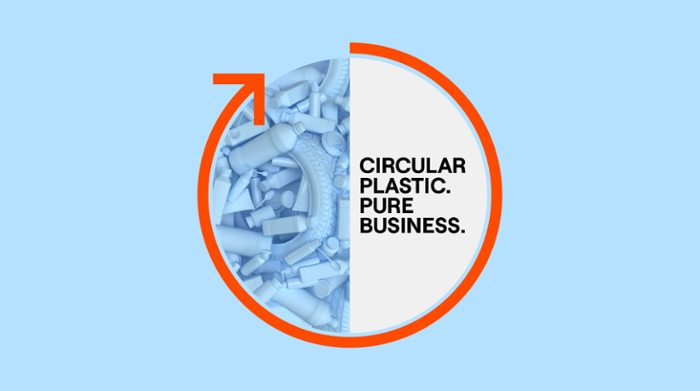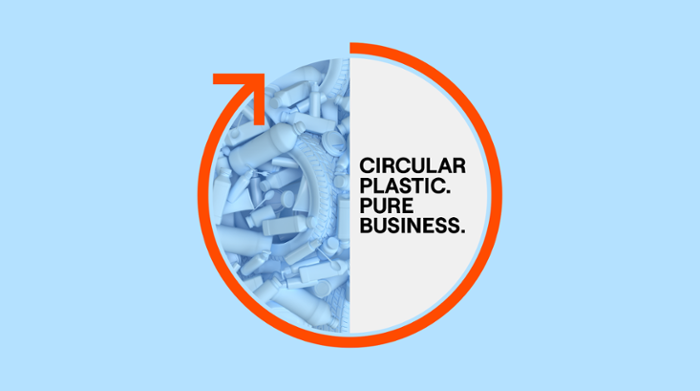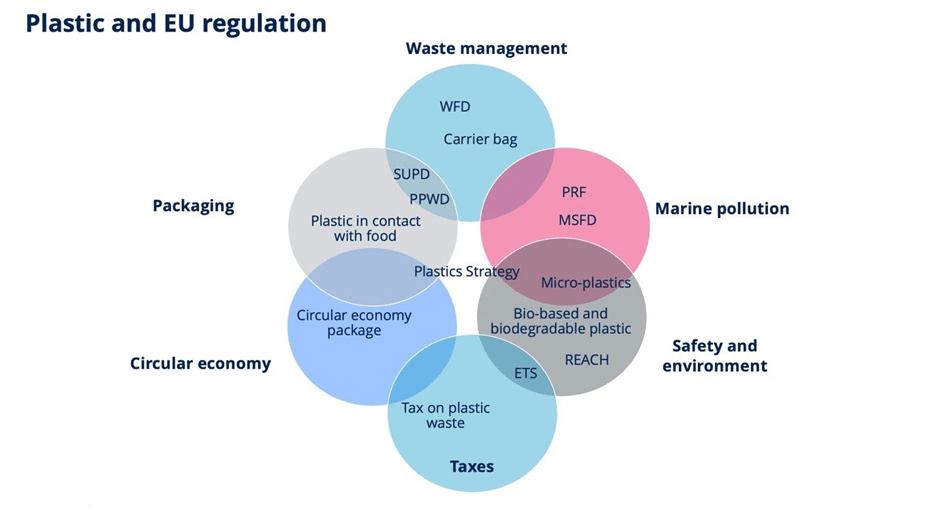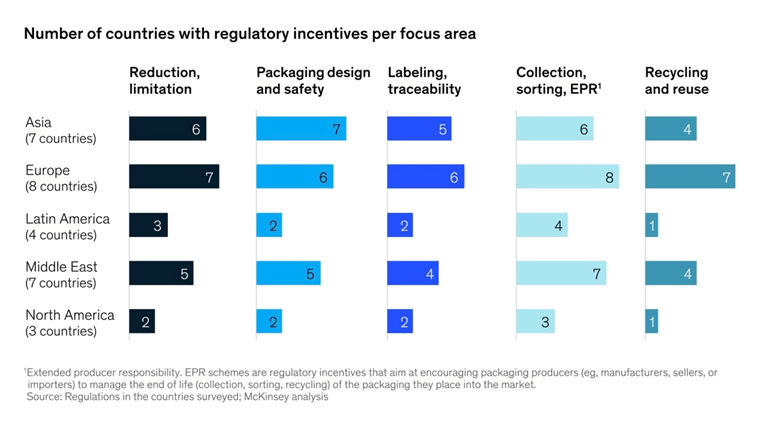A clearer picture: what does legislation mean for chemical recycling?

“Plastic waste must be tackled for the sake of all life in the ocean.” – David Attenborough, biologist, natural historian, and author.

Something must be done to solve the plastic problem. Not only for the good of ocean life, but to dramatically reduce the amount of waste that’s sent to landfill and incinerated, and to remove virgin fossil feedstocks from the production process.
To that end, legislation is being drawn up and revised on a global level, and at a fast rate. When you take just the EU as an example, there’s a comprehensive and complex array of regulations that have been — or will be — introduced. Some of it is being revised to incorporate the latest developments in recycling technologies.
In the last few years, the EU has focused on the circular economy, waste management and plastic pollution. This led to the launch of the Plastic Strategy in 2018.
Blurred lines
Figure 1. Plastic and EU legislation

WFD (Waste Framework Directive), PRF (Port Reception Facilities Directive), MSFD (Marine Strategy Framework Directive), REACH (Registration, Evaluation, Authorisation and Restriction of Chemicals), ETS Emissions Trading System, PPWD (Packaging and Packaging Waste Directive), SUPD (Single-Use Plastic Directive).
As Figure 1 shows, it is a complicated picture, with many over- and interlapping touchpoints. And they affect every step in the value chain.
As time goes on, the standards of the Plastic Strategy are expected to become commonplace, even beyond the EU. Other major economies such as the US and Australia are seeing rapid developments.
In this ever-changing landscape, it is important to know where you stand. Navigating your business through these shifting demands will require knowledge and adaptability.
Legislation in focus
Let’s take a closer look at three key areas of legislation. While far from being the whole picture, they are a crucial part of the story for the chemical recycling industry:
1. Waste shipment regulation (WSR)On 17th November 2021, the European Commission submitted its proposal for new EU rules on shipments of waste, which will replace the current regulations from 2006.
The WSR will ensure EU countries cannot export their waste challenges to third countries, with stricter measures against illegal shipments. The countries will still be able to exchange shipments for recycling or reuse within the EU.
Questions remain open on how mixed streams of plastic waste will be classified, and the contamination thresholds allowed. What’s certain is it's an important piece of regulation, as it will partly decide future feedstock availability.
When it comes to certification of your plastic product flows, several “chain of custody” frameworks are possible:
For the petrochemical industry, the “mass balance” approach is the preferred methodology. This allows for mixing with those conventional feedstocks which are still required, and a company’s accounting system delivers the basis for the traceability of product flows.
Third party certification is required, and certification providers for circular plastic include ISCC Plus, RSB Standard for Advanced Products, Recyclass, and EuCertPlast.
3. Life Cycle Assessment (LCA)A Life Cycle Assessment is a methodology for assessing the environmental impact associated with the life cycle of a commercial product. Several LCA studies for chemical recycling exist, showing a wide range of results. No consensus has been reached, as results depends on boundaries, approach and fossil reference. However, the EU Commission is working on consolidating these results.
Seeing the bigger picture
EU legislation about plastic and plastic waste is complex and covers a wide range of topics, from marine waste to waste shipment, and plastic in contact with food. Figure 1 (above) shows chemical recycling is affected across the whole “value chain” by these regulations.
Legislation in the chemical recycling space is rapidly taking shape and many regulations are still being revised and debated as we speak. Interdependency between these regulations is high, so further clarifications can be expected in the fullness of time.
Geography will play a part here, with different areas of the world creating unique regulatory environments. Figure 2 displays the variations in regulation of plastic packaging.

Figure 2. Source: McKinsey & Company
Clarity from collaboration
Being on top of the various regulations will be key for first movers in this area. Topsoe, with our many industry references and extensive internal expertise, can help.
Our advanced chemical recycling solution, PureStep™, is already underway with several clients around the world. For example, Topsoe is working together with Dow on the design and engineering of a new 10,000 ton per year market development unit (MDU) in the Netherlands.
Topsoe is here to guide the way to to help you minimize GHG emissions for fuels, chemicals, and energy.
Discover
Discover how to move with confidence into the advanced chemical recycling industry with PureStep™.
Share your thoughts
Comment on this post